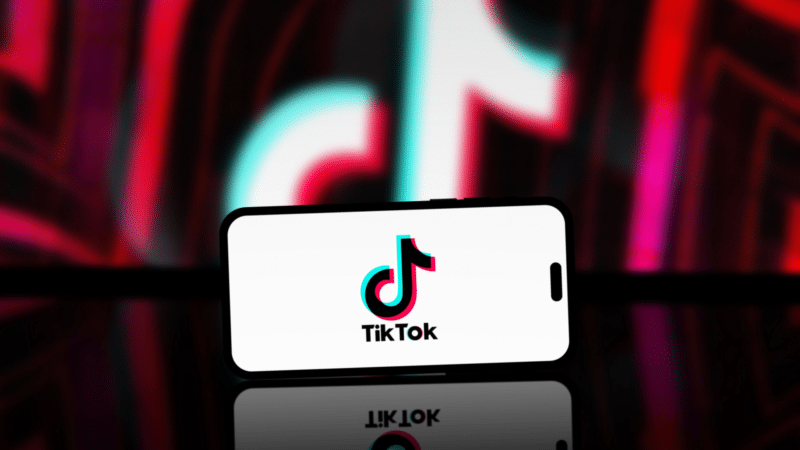On Monday, Google and the Justice Department will begin their second antitrust trial of the year. The tech giant lost the last case, which was about monopolistic practices in online search. Now the DOJ is accusing the company of using its adtech to create a monopoly. That trial begins Monday.
“Having inserted itself into all aspects of the digital advertising marketplace, Google has used anticompetitive, exclusionary, and unlawful means to eliminate or severely diminish any threat to its dominance over digital advertising technologies,” the DOJ said when it filed the lawsuit.
Dig deeper: ad-businesses/" target="_blank" rel="noopener">Antitrust bill could force Google, Facebook and Amazon to shutter parts of ad business
At the heart of the case is Google’s operating products for publishers and advertisers. The DOJ and 17 state attorneys general say that by tying its tools for publishers and advertisers together, those products let the company dominate the digital advertising market. Google has denied the claims, saying it is not required to share technological advantages with rivals and that its products are interoperable with those of competitors.
The Justice Department alleges that Google controls 91% of the market for ad servers, where publishers offer ad space, more than 85% of the market for ad networks, which advertisers use to place ads, and over half of the market for ad exchanges.
Market share is the first thing courts consider when determining if a monopoly exists. While having a 50% market share can mean there is a monopoly, judges generally require at least a 60% to 65% market share. However, it is entirely legal to have that much of a market if it is from having a better product than the competition.
Hard to determine
It’s not a simple issue, and people in the industry say it’s hard to know if Google is wrong.
“Even though I didn’t know all the mechanics that well in the search trial, my read on it was Google is screwed here,” said a senior online publishing executive who asked to remain anonymous. “In this case, I know the mechanics very well and understand this market and I’m more fuzzy about it. For me, the challenge is where is the line between what is normal competitive behavior and what is anti-competitive behavior?”
The United Kingdom today said it is anti-competitive behavior. The Competition and Markets Authority ruled “that Google is using anti-competitive practices in open-display ad tech.” While this ruling has no legal authority in the U.S., it is not a good omen for Google.
The wrong remedy for the problem?
The DOJ suit seeks to force the tech giant to eliminate its ad businesses and stop the company from engaging in allegedly anticompetitive practices. Those businesses are key to the more than 75% of Google’s $307.4 billion in revenue last year that came from advertising.
However, publishers worry that the remedy would do far more harm than good.
“The requested remedy is for Google to be forced to sell off Google Ad Manager (GAM) and AdX which sounds good,” the executive said. The problem is the impact this would have on DV360 which is “an underlying [programmatic advretising] source that gets the publishers…40% plus of their revenue.”
Dig deeper: Why Google lost: The DoJ’s case in 11 slides
Google gets a 20% cut out of ads going from DV360, which is free to use, to AdX. “Without AdX there’s no incentive for Google to spend on DV360 anymore, which the publishers need to survive,” he said. So, while the proposed remedy might end the alleged monopoly, it could wind up causing a lot of harm to others.
Who will get to testify
In August, Google filed a motion to block testimony from government witnesses who aren’t economists or antitrust experts. In its brief, the company said, “None of these third-party competitor witnesses has the proper foundation of knowledge, expert qualifications or done the required economic analysis to opine as to whether Google is a monopolist whose conduct harmed competition.”
These witnesses include the biggest names in the industry: AppNexus founder Brian O’Kelley — called the godfather of programmatic advertising — Index Exchange CEO Andrew Casale, OpenX CEO John Gentry, Vox CRO Ryan Pauley, The Trade Desk CRO Jed Dederick and many others.
Regardless of that, the publishing industry exec said the first days of the trial will say a lot about Google’s fate.
“We’ve already seen Google try a bunch of legal maneuvers that the judge has slapped down,” he said. “So we have little bit of a data point here about their perspective on things. In the first couple of days, we’ll find out more about the attitude of the judge [toward both sides].”
Related stories
New on MarTech
@media screen and (min-width: 800px) { #div-gpt-ad-6013980-7 { display: flex !important; justify-content: center !important; align-items: center !important; min-width:770px; min-height:260px; }
}
@media screen and (min-width: 1279px) { #div-gpt-ad-6013980-7 { display: flex !important; justify-content: center !important; align-items: center !important; min-width:800px!important; min-height:440px!important; }
}
.avatar-border { border: 3px solid #ee3024; } .badge-color { border: 1px solid #ee3024 !important; background-color: #ee3024 !important; }







